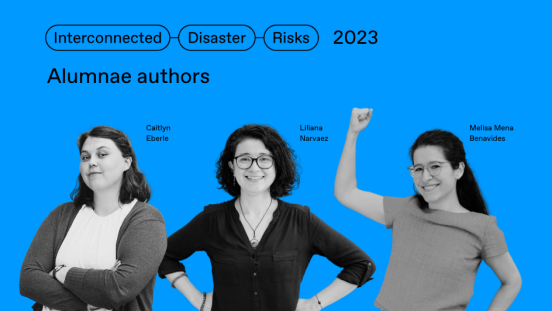Liliana Narvaez is a Colombian Geologist and Senior Research Associate at UNU-EHS, who graduated from University of Caldas (Manizales, Colombia) and holds a Master of Science on Geography of Environmental Risks and Human Security from University of Bonn & United Nations University (Bonn, Germany). She is a Geologist, volcano geek and Eco-DRR enthusiast!
Liliana's research is linked to the Environmental Vulnerability & Ecosystem Services (EVES) division, where she mainly focuses on understanding losses and damages related to ecosystems, ecosystem services and biodiversity, with a particular interest in wetlands. She is also passionate about the role of ecosystem health in disaster risk reduction.
Liliana has been a co-author of the UNU-EHS flagship publication since its first edition in 2021: Interconnected Disaster Risks report. As part of this series, Liliana has contributed to the research and writing of several technical reports. In addition, Liliana has been one of the researchers involved in outreach activities during the launch of the three editions of each flagship report. As such, she has been interviewed by several media outlets in Latin America and Spain to share the findings with Spanish-speaking audiences.
Previously, she worked for more than six years as a disaster risk specialist on several projects in Colombia and Panama. She was responsible for the scientific assessment of natural processes, including geological, geomorphological and climatic hazards, as well as the technical analysis of exposed areas and the identification of potential losses and damages. She started her career at the Colombian Geological Service (SGC), where she worked on volcanic hazard assessment, disaster risk communication and risk reduction initiatives at national and local levels, including small rural communities and indigenous peoples. She also completed an internship with the International Union for Conservation of Nature (IUCN) at the Regional Office for Mexico, Central America and the Caribbean (ORMACC), based in Costa Rica. This internship focused on assessing adaptive capacity to climate change using the Ecosystem Based Adaptation (EbA) approach. Her Master's thesis focused on the role of community perceptions in building adaptive capacity to water availability in a small coastal area in El Salvador.


